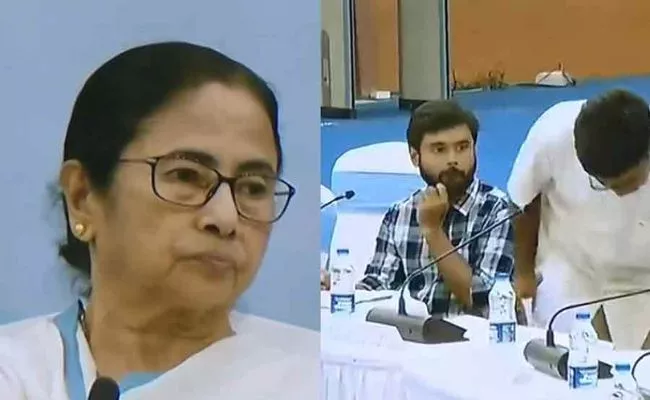.gif)
.gif)

Junior doctors have called for the establishment of an interim monitoring committee until the long-awaited student council elections can be held. Debashis Halder, representing junior doctors, made this demand during a meeting with Chief Minister Mamata Banerjee at the Nabanna meeting hall on Monday evening. This proposal comes as part of a broader ten-point agenda presented by junior doctors who are currently facing challenges related to the governance structures in their institutions.
During the meeting, junior doctors articulated their pressing need for student council elections, expressing concerns about a prevailing "threat culture" in medical colleges. Halder emphasized that members of the interim monitoring committee should be nominated by a majority of undergraduate medical students or senior resident doctors, highlighting the importance of ensuring that these representatives are trusted by their peers. The fear among junior doctors is palpable; many believe that any return to a culture of intimidation could undermine their advocacy efforts and overall student welfare.
Chief Minister Mamata Banerjee has shown a willingness to engage with the concerns raised by the junior doctors. In a previous encounter with hunger-striking protesters, she acknowledged the challenges posed by the impending Kali Puja celebrations and upcoming exams, requesting a timeframe of 3-4 months to facilitate the election process. However, the junior doctors were quick to express their frustration over delays and reiterated the urgency for a robust electoral framework to ensure their voices were heard.
As part of their proposal, junior doctors Kinjal-Aniket-Debashis outlined the necessity of forming the monitoring committee as an interim measure to safeguard student interests until elections can be realized. This plan underscores the sentiment that while elections are essential, the current environment demands a temporary solution to protect students from potential exploitation and maintain accountability within their ranks.
Kinjal and Asfaqullad voiced their apprehensions regarding the selection process for committee members. They highlighted the case of individuals like Sandip Ghosh, who allegedly perpetuated a culture of intimidation within medical colleges. The doctors argued that without a transparent electoral process, the risk of replicating such harmful dynamics remains high. Trust in the election process, rather than mere selection, has emerged as a key demand from the junior doctors.
Chief Secretary Manoj Pant responded to the junior doctors’ concerns, assuring them that the student council elections are scheduled to occur by March 2025. However, the delay has left many junior doctors feeling anxious about their immediate representation and the safeguarding of their rights. As the situation unfolds, the establishment of the interim monitoring committee may provide a necessary bridge until formal elections can restore the democratic processes within medical institutions.